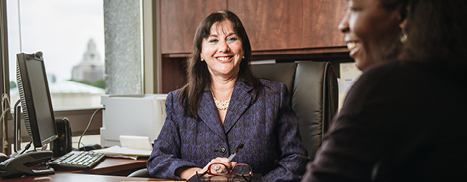Areas of Expertise

J-1 Exchange Visitors
The Exchange Visitor non-immigrant visa category is for foreign nationals approved to participate in work-and study-based exchange visitor programs. Examples of exchange visitors include, but are not limited to: Professors or scholars; Research assistants; Students; Interns and Trainees; Teachers; International Medical Graduates; Nannies/Au pairs; and Camp counselors.
The U.S. host employer, which can be a school, private company, non-profit, or a university, would seek sponsorship from a sponsor organization approved by the U.S. Department of State. Upon the issuance of the required Form DS-2019 issued by the sponsor organization, the J-1 applicant can apply for a visa at a US Consulate in his or her home country.
The J-1 visa is complicated insofar as certain visa holders can become automatically subject to Immigration and National Act section 212(e), which requires the J-1 visa holder to return to their home country for at least two years following the completion of the J-1 program. A J-1 visa holder subject to 212(e) is ineligible for H-1B status or permanent residence unless either the two year home residency requirement has been completed or a waiver of this requirement has been approved by the USCIS. The waiver requirements are most often applied to foreign physicians, who can seek an exception to the foreign residency requirement through working in a medically underserved area for at least three years in primary care or certain specialties. Other J-1 visa holders may also qualify for a waiver, depending on the reason for being subject, by seeking a “No Objection” statement from the visa holder’s home country, demonstrating that the visa holder would be subject to persecution on account of race, religion or political upon return to the home country, or by proving that departure to the US would result in exceptional hardship to the visa holder’s US citizen or lawful permanent resident spouse or child.
Given the harsh consequences of the two year foreign residency requirement, it is therefore of vital importance that an employer seeking to sponsor a foreign national initially consult with a BLS attorney. In addition, our lawyers can navigate an employer and the affected employee through the J-1 Conrad 30 waiver application process (for physicians) as well as the other potential waiver categories.
Temporary Work Visas
September 26, 2025
DHS Publishes Proposed Rule for Weighted H-1B Cap Lottery On September 24, 2025, the Department of Homeland Security (“DHS”) published a proposed rule implementing a “weighted” selection process for...MoreSeptember 16, 2025
Department of State Releases October 2025 Visa Bulletin The DOS released its October 2025 Visa Bulletin. October begins a new fiscal year for the U.S. government bringing forward movement...More